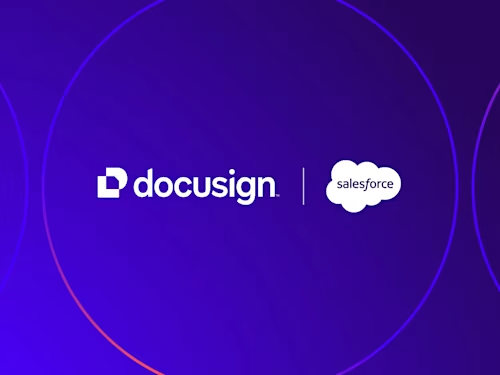
Conheça os recursos que tornam os documentos acessíveis e compatíveis
Conheça os recursos que tornam os documentos acessíveis e compatíveis. Acesse agora e leia o artigo completo!

Com mais de 200 milhões de usuários no mundo todo, a Docusign lida com milhões de documentos diariamente. Conheça os recursos que a plataforma oferece para tornar os documentos totalmente compatíveis e acessíveis.
Compatibilidade
O Docusign é compatível com praticamente todos os tipos de arquivos da maioria dos aplicativos, como Microsoft Word, Excel e PowerPoint: isso garante que todos seus documentos importantes sejam enviáveis para assinatura. Além disso, a plataforma reconhece documentos em PDF e marca automaticamente os campos de preenchimento para que os signatários insiram seus dados.
Alguns dos formatos de arquivo compatíveis são .doc, .docx, .pdf, .xls, xlsx, .txt e muitos outros. Você também pode usar o comando de impressão para enviar um documento ao Docusign a partir de mais de 50.000 aplicativos com o driver de impressão da Docusign.
Conversão de formulário de PDF
Ao fazer upload de um PDF, o Docusign automaticamente reconhece e converte os campos do PDF em campos para preenchimento do signatário. Esse recurso economiza tempo na preparação de documentos para assinatura.
Campos e Marcações
Esses recursos permitem que você oriente clientes a assinar e rubricar nos locais certos, em questão de segundos. Use marcações padrão para coletar assinaturas, iniciais, nomes, títulos, nomes de empresa e outras informações relevantes. Além disso, você também pode modificar as marcações para fins específicos e salvá-las como marcações personalizadas para voltar a usar no futuro. As marcações disponíveis incluem assinaturas, iniciais, nomes, títulos, nomes de empresa, texto, números, moedas, notas e muito mais
Integração com armazenamento em nuvem
Com este recurso, você pode recuperar ou baixar documentos de serviços de armazenamento em nuvem amplamente usados como Google Drive, Dropbox, Evernote, Microsoft Office 365, Microsoft SkyDrive, Egnyte e Citrix ShareFile.
Marcações automáticas
Você pode ancorar marcações e campos em determinadas linhas do texto para que, quando colocá-los em um documento, eles apareçam automaticamente no local certo. Mesmo que o documento mude, as marcações de âncora acompanham o texto.
PowerForms
Com este recurso, você pode criar uma transação para seus signatários sem ter que enviar os documentos para assinatura da sua conta Docusign. Você pode hospedar um link em seu site ou distribuir ele através de uma forma segura via e-mail. E a partir disto, seus signatários estarão aptos a assinar ou preencher qualquer documento eletrônico pré-definido por você.

Diego Lopes é um Gerente Senior de Marketing de produto na Docusign. Com mais de 14 anos de experiência em gestão de produtos, com foco em soluções digitais para Business Intelligence, Insights, Mídia e campanhas; Bacharel em Comunicação pela Universidade de São Paulo (ECA-USP) e Pós-graduado em Gestão Empresarial pela Escola Superior de Propaganda e Marketing (ESPM);
Publicações relacionadas
Docusign IAM é a plataforma de acordos que sua empresa precisa para o sucesso


